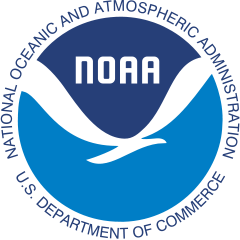National Academy of Science honors NOAA’s Kirk Bryan for pioneering ocean and climate science

Former NOAA scientist Kirk Bryan Jr., Ph.D, has been named winner of the 2023 National Academy of Science’s (NAS) Alexander Agassiz Medal for his pioneering work in oceanography and climate science.
Bryan is widely recognized as the founder of numerical ocean modeling, and his work in the late 1960s at NOAA’s Geophysical Fluid Dynamics Laboratory (GFDL) in Princeton, New Jersey led to the first-of-its-kind general circulation climate model – combining both oceanic and atmospheric processes to bring forth insights into how the ocean and atmosphere interact with each other to influence climate. The model also predicted how changes in the natural factors that control climate such as ocean and atmospheric currents and temperature could lead to climate change. The model still stands today as a breakthrough of enormous importance for climate science and weather forecasting and was foundational to current ocean models. Earlier knowledge of the oceanic and atmospheric circulation, and their interactions, was based purely on theory and observation.
“Kirk Bryan had to learn to simulate the circulation of fluids in the challenging geometry of the World Ocean,” said Steve Thur, Ph.D, NOAA’s assistant administrator for Oceanic and Atmospheric Research. “His work essentially helped us to see how the ocean influences climate and also understand how our climate was changing.”
The work was especially impressive given the computing limitations of the day. The computer used to develop and run the first model Bryan developed ran with just half a megabyte of memory—not enough to store a modern high-resolution digital picture in 2023. In contrast, the modern supercomputer at GFDL provides more than 100,000 times the computing power of that early machine.
“When my career began, the tendency was to describe the atmosphere in more or less qualitative terms, tracing water masses around from one part of the ocean to another,” Bryan said. “I’m enormously proud of the work we did to expand the quantitative knowledge of things, and pleased to accept this award and grateful to have our breakthroughs recognized this way.”
Bryan led the GFDL Ocean Division from 1961 until his retirement in 1995. In 2006, the journal Nature cited GFDL’s original climate model among other breakthroughs in their list of milestones in scientific computing which have had a profound effect on society, along with innovations such as the first CT scanner, the first hand-held scientific calculator, and the Internet.
The Alexander Agassiz Medal is only presented once every five years and honors original contributions in the science of oceanography. The award includes a medal and a $20,000 prize and will be presented during the NAS 160th Annual Meeting on April 30 at 2:00pm Eastern and will be webcast live. More information can be found on the NAS website.


